Recovering from two recent civil wars, Liberia is in tatters. One of the world's poorest countries, its people live an average of less than 50 years. Its unemployment rate of 85% is reportedly the highest in the world. Even in Monrovia, the capital, basic services such as electricity, clean drinking water and health care are scarce or non-existent; people have a daily struggle to survive. If ever a country needed development (preferably of the sustainable variety), Liberia is it.
This edition of the TFU presents the findings of a recent ITTO diagnostic mission to Liberia. According to the mission, forests could play a big role in the country's recovery, providing employment and foreign exchange, both of which are essential if the country is to rebuild and move towards sustainable development.
Tropical Forest Update

Issue 15 No 3
Liberia's great thirst
.jpg)
Photo: N. Sizer
Contents
-
Timber and the rebuilding of Liberia
.jpg)
Photo: N. Sizer
Liberia's forest sector could play a crucial role in the country's post-war reconstruction. But it needs help
-
On the threshold of something special
.jpg)
Photo: G. Wetterberg
Four recently evaluated ITTO projects show that creative approaches to conservation on international borders can benefit local people, biodiversity and cooperation between countries–but long-term commitment is needed
-
C&I made easier
.jpg)
ITTO publishes a new edition of its criteria and indicators for sustainable forest management
-
From paper to the forest
.jpg)
Photo: R. Eba’a
A six-year project designed to promote sustainable forest management in Africa through the use of criteria and indicators has taken some important first steps towards field implementation
-
Brazil develops national C&I
.jpg)
Photo: M. Schmid
The development of criteria and indicators has advanced the cause of certification in the country
-
Forest dwellers find urban life stressful
.jpg)
Photo: Herwasono
SoedjitoA new study suggests that the move from forest to town has its downside for Indonesia's Punan
-
ITTO's new projects
The projects summarised here were financed at the 38th session of the International Tropical Timber Council in June 2005
-
Made in Italy, grown in the tropics?
The high-value Italian furniture industry uses only a modest amount of timber from the tropics. Producers have some work to do to increase their share
-
Out on a limb
Delegates meeting at the United Nations fail to agree on the future of the international arrangement on forests
-
Fellowship report
.jpg)
Increasing public awareness about Colombia's threatened magnolia species is a key to their survival
-
On the conference circuit

Reports on the Philippine Forestry Development Forum, the International Workshop on Promoting Permanent Sample Plots in Asia and the Pacific Region, and the ITTO/FAO International Conference on Tropical Plywood
-
Recent editions

New books and reports
-
Topical and tropical

Reports recent developments in tropical forestry
-
Courses

Short training courses for professionals in forestry and related disciplines
-
Meetings

A comprehensive listing of coming conferences relevant to sustainable tropical forest management
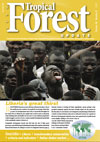
Full edition
The ITTO Tropical Forest Update is published quarterly in English, French and Spanish.
The French and Spanish editions are usually posted about one month after the English.
Latest editions
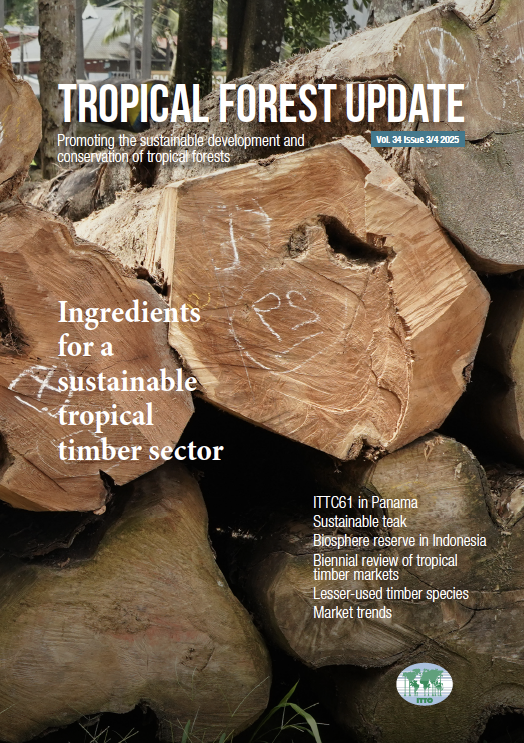
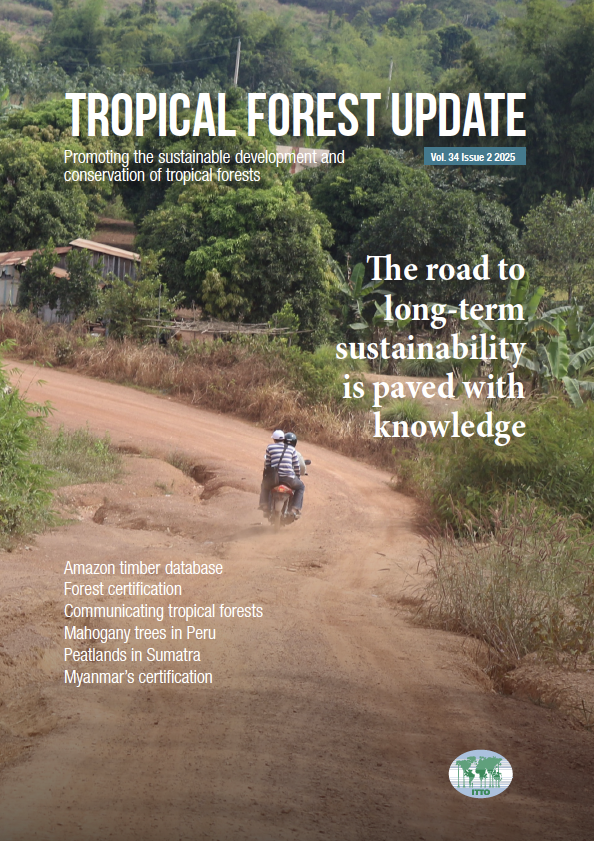
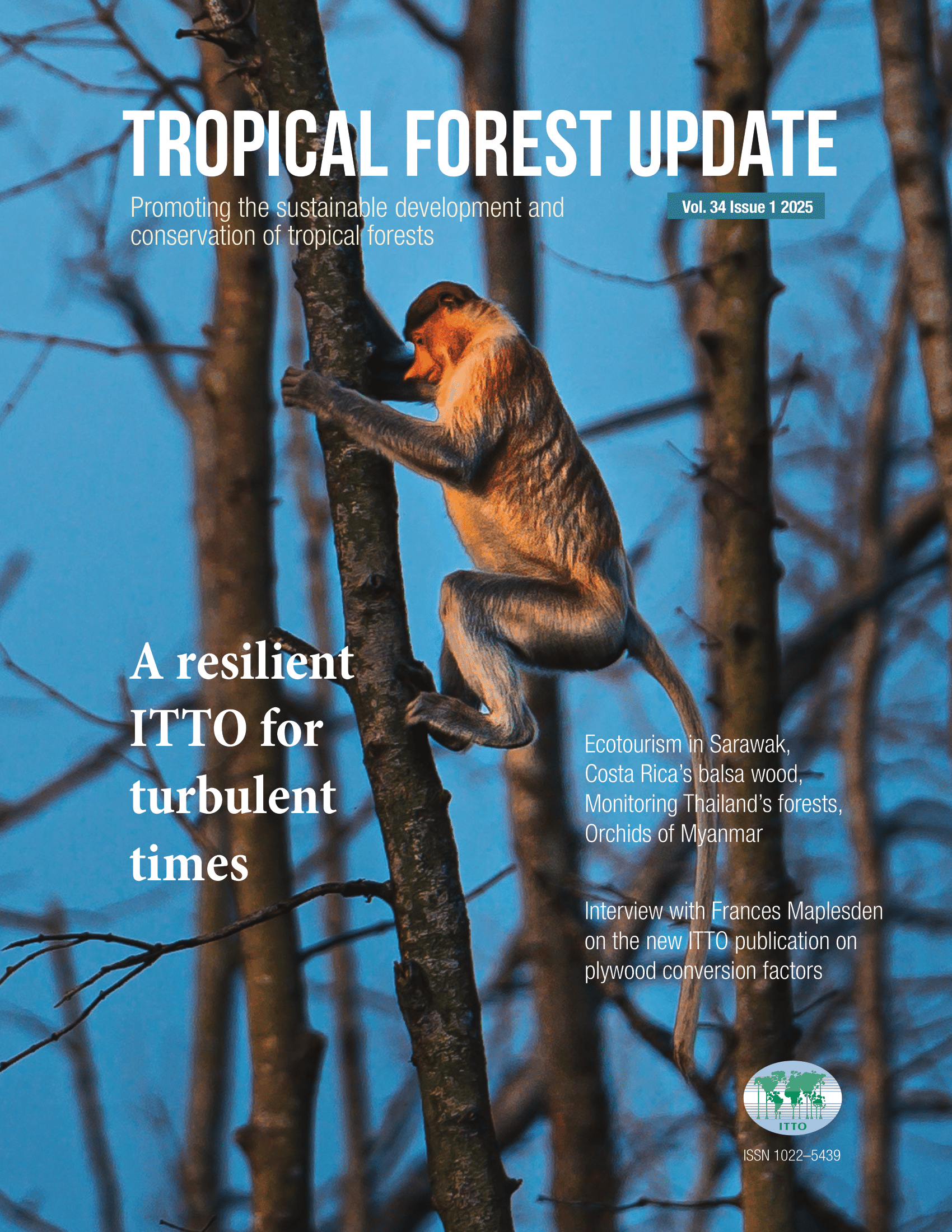
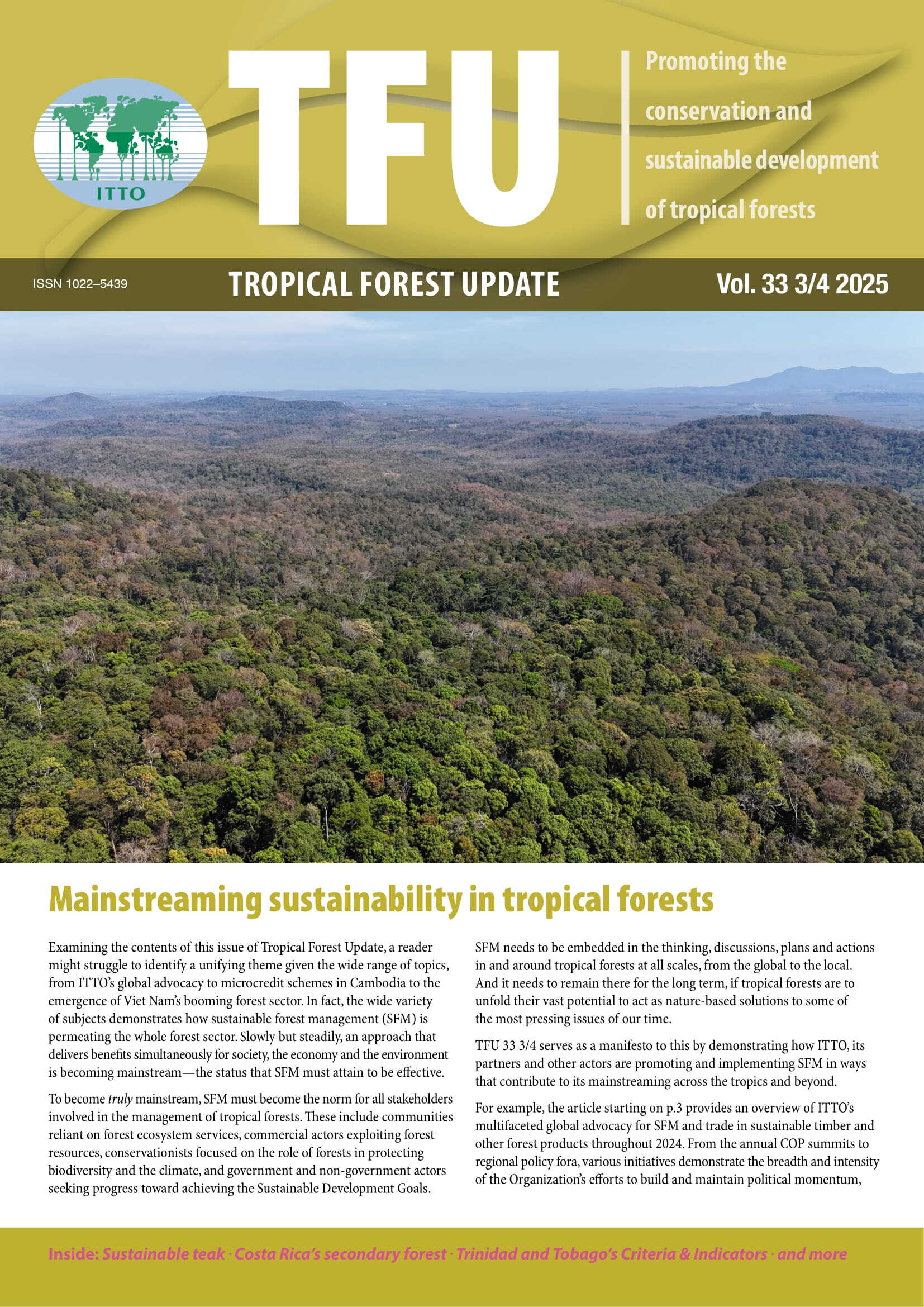
Issue 34 No. 3/4
Ingredients for a sustainable tropical timber sector
A sustainable tropical timber sector can be achieved through the combined and cumulative impact of many relate...
Issue 34 No. 2
The road to long-term sustainability is paved with knowledge
Faced with growing evidence of the havoc that climate change and biodiversit...
Issue 34 No. 1
A resilient ITTO for turbulent times
Resilience has long been a buzzword in ITTO circles. For anyone concerned with tropical forests, it evokes sust...
Issue 33 No. 3/4
Mainstreaming sustainability in tropical forests
Examining the contents of this issue of Tropical Forest Update, a reader might struggle to identify a unifying t...
Content does not necessarily reflect the views or policies of ITTO. ITTO holds the copyright to all photos unless otherwise stated. Articles may be reprinted without charge providing the Tropical Forest Update and author are credited and the editor notified (tfu@itto.int).

